
Thomas William Davids (1816–1884) was a Welsh nonconformist minister and ecclesiastical historian.

Thomas William Davids (1816–1884) was a Welsh nonconformist minister and ecclesiastical historian.
Born at Swansea 11 September 1816, he was the only child of William Saunders Davids, pastor of the Congregational church meeting in Providence Chapel, and his wife Bridget, daughter of Thomas Thomas of Vrowen in the parish of Llanboidy, Carmarthenshire. His father died in December 1816, and his mother in 1831; and he was adopted by his uncle Thomas Thomas of Llampeter Velfry, a man of means. For some years he was educated for the medical profession; but in 1835, against his uncle's wishes, he entered Homerton College, then under John Pye Smith, and studied for the ministry. [1]

Swansea, is a coastal city and county, officially known as the City and County of Swansea in Wales. Swansea lies within the historic county boundaries of Glamorgan and the ancient Welsh commote of Gŵyr on the southwest coast. The county area includes Swansea Bay and the Gower Peninsula. Swansea is the second largest city in Wales and the twenty-fifth largest city in the United Kingdom. According to its local council, the City and County of Swansea had a population of 241,300 in 2014. The last official census stated that the city, metropolitan and urban areas combined concluded to be a total of 462,000 in 2011; the second most populous local authority area in Wales after Cardiff.

Llanboidy is a village and community in the principal area and historic county of Carmarthenshire, West Wales.
In 1840 Davids was invited to become minister of the Congregational church meeting in Lion Walk, Colchester in Essex. The congregation outgrew the church, and a new church was built in Lion Walk. Davids became secretary of the Essex Congregational Union, and in 1874 moved to Forest Gate. [1]
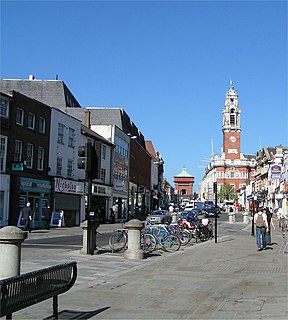
Colchester is a historic market town and the largest settlement within the borough of Colchester in the county of Essex. Colchester was the first Roman-founded city in Britain, and Colchester lays claim to be regarded as Britain's oldest recorded town. It was for a time the capital of Roman Britain, and is a member of the Most Ancient European Towns Network.

Essex is a county in the south-east of England, north-east of London. One of the home counties, it borders Suffolk and Cambridgeshire to the north, Hertfordshire to the west, Kent across the estuary of the River Thames to the south, and London to the south-west. The county town is Chelmsford, the only city in the county. For government statistical purposes Essex is placed in the East of England region.
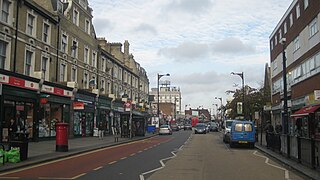
Forest Gate is a residential district in East London, England, in the London Borough of Newham.
Davids was elected an honorary corresponding member of the New England Historic Genealogical Society. He died at Forest Gate of heart disease on 11 April 1884. [1]
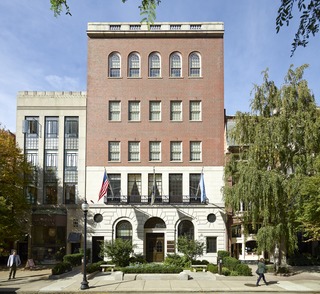
The New England Historic Genealogical Society (NEHGS) is the oldest and largest genealogical society in the United States, founded in 1845.
For the bicentenary celebration of the Great Ejection in 1662, Davids was asked in 1862 to prepare a memorial of those who were evicted in Essex. He researched manuscript authorities (in Essex parish registers, the Record Office, British Museum, Dr. Williams's Library). Results of his researches appeared as the Annals of Evangelical Nonconformity in the County of Essex from the time of Wycliffe to the Restoration, with Memorials of the Essex Ministers ejected or silenced in 1660–1662 (1863). Six further folio volumes went after his death to the library of the Memorial Hall in Farringdon Street. [1]

The Great Ejection followed the Act of Uniformity 1662 in England. Several thousand Puritan ministers were forced out of their positions by Church of England clergy, following the changes after the restoration to power of Charles II. It was a consequence of the Savoy Conference of 1661.
Davids then took up the question of "evangelical belief" stretching centuries before the time of John Wycliffe and Jan Huss; but his planned Annals of Reformers before the Reformation was not completed. He published historical articles and reviews, including biographies of heretics in the Dictionary of Christian Biography of William Smith and Wace; and a paper on Evangelical Nonconformity under the first of the Plantagenets ( British Quarterly for September 1870). [1]

John Wycliffe, was an English scholastic philosopher, theologian, Biblical translator, reformer, English priest, and a seminary professor at the University of Oxford, became an influential dissident within the Roman Catholic priesthood during the 14th century and is considered an important predecessor to Protestantism.

Sir William Smith was an English lexicographer. He also made advances in the teaching of Greek and Latin in schools.
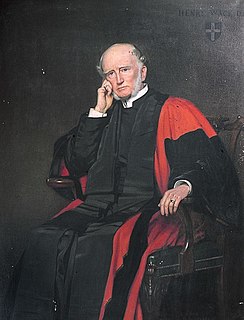
Henry Wace was Principal of King's College, London (1883–1897) and Dean of Canterbury (1903–1924). He is described in the Dictionary of National Biography as "an effective administrator, a Protestant churchman of deep scholarship, and a stout champion of the Reformation settlement".
In 1841 Davids married Louisa (died 1853), daughter of Robert Winter, solicitor, of Clapham Common. The Sunday school attached to his church became well known as a model, and she published in 1847 an essay The Sunday School, which was awarded a prize offered by the Sunday School Union, had four editions, and was for some years regarded as a standard text. They had six children by his first wife. Davids married a second time, on 28 April 1859, Mary, daughter of William Spelman of Norwich; they had no children. [1]

Clapham Common is a large triangular urban park in Clapham, south London. Originally common land for the parishes of Battersea and Clapham, it was converted to parkland under the terms of the Metropolitan Commons Act 1878. It is 220 acres of green space, with three ponds and a Victorian bandstand. It is overlooked by large Georgian and Victorian mansions and nearby Clapham Old Town.
Attribution
![]()

Robert Vaughan (1795–1868) was an English minister of the Congregationalist communion, academic, college head and writer, from a Welsh background. He was professor of history in the London University, and then president of the Independent College, Manchester. He founded, and for a time edited, the British Quarterly.
John Humfrey (1621–1719) was an English clergyman, an ejected minister from 1662 and controversialist active in the Presbyterian cause.

Oliver Heywood (1630–1702) was a British nonconformist minister, ejected for his beliefs.

Thomas Case was an English clergyman of Presbyterian beliefs, member of the Westminster Assembly, where he was one of the strongest advocates of Christian government. Although earlier a strong defender of the Parliamentary cause, he fell out of sympathy with the regicides and became a supporter of the Restoration of the Stuart monarchy.

William Jenkyn (1613–1685) was an English clergyman, imprisoned during the Interregnum for his part in the 'Presbyterian plot' of Christopher Love, ejected minister in 1662, and imprisoned at the end of his life for nonconformity.
Richard Capel (1586–1656) was an English nonconforming clergyman of Calvinist views, a member of the Westminster Assembly, and for a period of his life a practicing physician.
Thomas Cawton the elder (1605–1659) was an English clergyman of presbyterian and royalist views. After the discovery of the plot of Christopher Love, he went into exile in the Netherlands.

John Collinges (1623–1690) was an English Presbyterian theologian, and prolific writer. He lived and worked in Norwich for more than forty years where he played a major role in reviving and administering the City Library. He was one of the representatives of the Presbyterians in the Savoy Conference, but was later forced to resign his livings.
William Manning (1630?–1711) was an English ejected minister and Unitarian writer.
Paul Amyraut or Paul Amarott was a German-English divine.
Thomas William Baxter Aveling was a British independent congregational minister, author and memorialist.
Samuel Palmer (1741–1813) was an English nonconformist minister, known as a biographer.
John Collins was an English Independent minister.

David Clarkson was an English ejected minister.
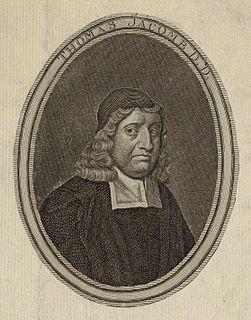
Thomas Jacomb (1622–1687) was an English ejected minister.

Rev Dr William Hanna DD LLD (1808–1882) was a Scottish minister, known as a theological writer and as the biographer of his father-in-law, Thomas Chalmers.
William Urwick the younger (1826–1905) was an Anglo-Irish nonconformist minister and antiquarian chronicler.
Nicholas Clagett was an English Puritan cleric and ejected minister.